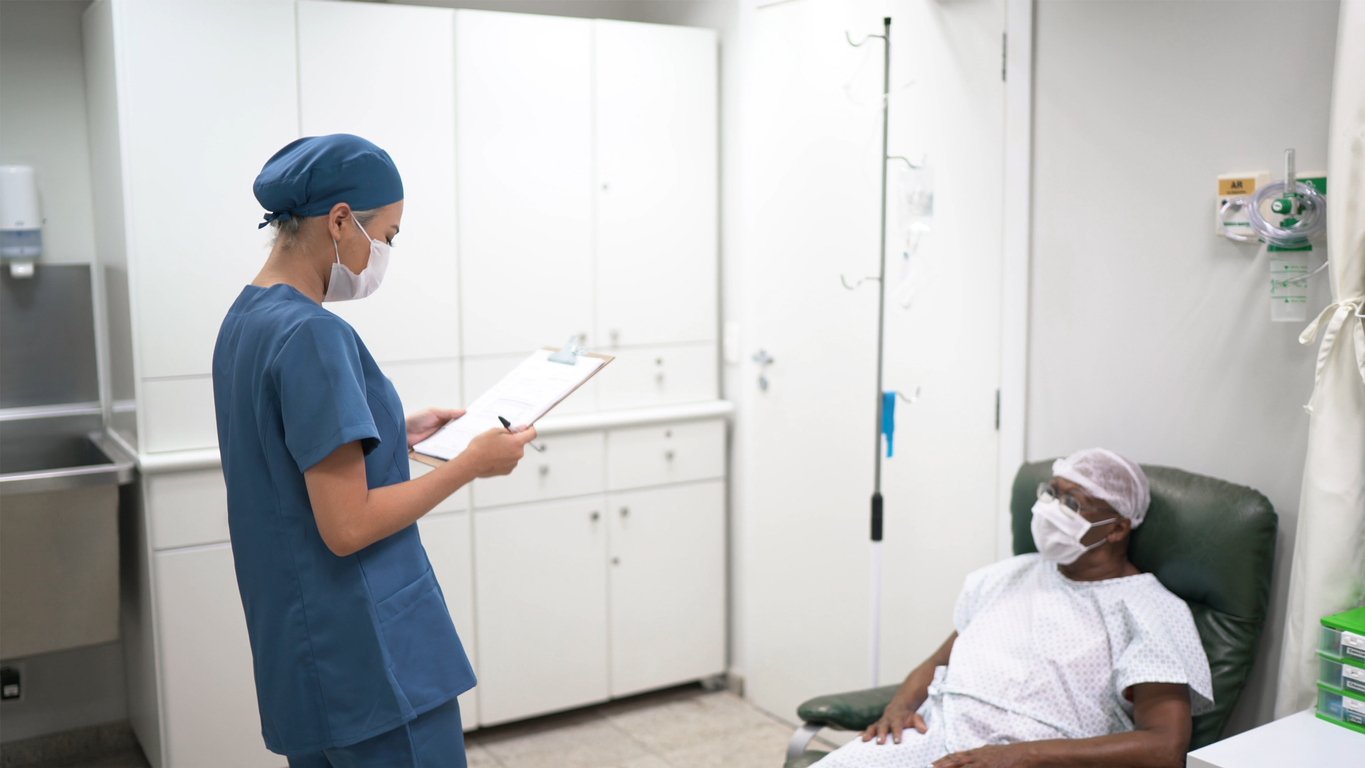Prof Louise Burke provides details of a new report examining the pandemic’s impact on cancer services and outlines the need to improve care for patients
We need to strongly encourage people to come forward as soon as possible with any potential cancer symptoms and prioritise cancer service delivery, to ensure timely cancer diagnosis and treatment through the ongoing pandemic. That is the key message in a new report – with which I’m pleased to have been involved – highlighting the impact of the Covid-19 pandemic on cancer services. The report, to be launched next month, shows that fewer patients with cancer symptoms presented during the first wave of the pandemic and an overall reduction in the numbers diagnosed with cancer in 2020, compared to 2019. The pandemic has impacted on all aspects of cancer diagnosis and treatment.
The report, Cancer Care in 2020 – The impact of the Covid-19 pandemic, led by the Faculty of Pathology of the RCPI, will be launched at an event on 2 December. It completes the analysis of available data for 2020 and represents a collaboration with the National Cancer Control Programme (NCCP), the National Specialty Quality Improvement Programmes in Histopathology, GI Endoscopy and Radiology, RCPI, and the National Cancer Registry Ireland (NCRI). Collaboration with the Northern Ireland Cancer Registry and DATA-CAN (the UK’s Health Data Research Hub for Cancer) has also enabled a comparison to be made with trends in Northern Ireland and the UK for the same period.
The goal of this collaboration was to investigate the cancer-specific impact of the pandemic by analysing a variety of data sources including rapid access clinic (RAC) referral and attendance rates and the number of cancers detected at the RACs, biopsy rates and cancer-related surgical resections for the Irish population. In December 2020, we published initial data which showed the impact of the first few months of the pandemic and now this new report includes data for the full year of 2020, in addition to data from the NCRI. A major strength of this report includes the voluntary contribution of collaborators, along with the diversity of specialities represented.
Webinar
The report will be launched at a webinar on 2 December at which time the findings and recommendations will be discussed by the report’s main collaborators including: Prof Risteárd Ó Laoide, National Director of the NCCP; Prof Mark Lawler, Associate Pro-Vice-Chancellor and Professor of Digital Health at Queen’s University Belfast and Scientific Director at DATA-CAN; Prof Deirdre Murray, Director of the NCRI; Dr Colm Henry, Chief Clinical Officer of the HSE; Dr Robert O’Connor, Director of Research at the Irish Cancer Society and Dr Diarmuid Quinlan, Medical Director with the ICGP, along with other key stakeholders.
This promises to be a lively and informative discussion about the priorities and actions necessary to sustain these essential services going forward. There are two CPD credits available and it is free for all healthcare professionals. You can book your place on the RCPI website.
Recommendations
Based on our analysis, the report makes three key recommendations. It calls for people to act early if they are concerned about cancer symptoms. It also highlights the need to ensure a resilient cancer system with sufficient capacity to address backlogs. And it states that there is a need to improve availability and integration of data to provide more timely, comprehensive, cancer-specific intelligence encompassing public and private healthcare systems.
Reduced activity
Cancer services activity affected by the pandemic and analysed in the report include patient presentation, diagnosis, and treatment. The data show that, overall, activity in 2020 did not reach annual 2019 levels. Referrals and attendances at rapid access clinics, where patients with potential cancers are referred for tests, were down from 2019 levels. Diagnostic activity and cancer treatment activity (for example, cancer resections) were also down, while data from the NCRI show fewer tumours diagnosed in 2020 compared with 2019.
Our report highlights that the reduction in activity was most marked during the first wave in March to June 2020 (compared with the same months in 2019) and can be attributed to the implementation of comprehensive Covid-19 risk-reducing measures introduced to deal with a novel viral infection, coupled with an acknowledged reluctance for people with suspicious symptoms to attend for clinical evaluation. From June 2020 onward, there was variable recovery and reassuringly, the data show that initial reductions in activities observed from March to June 2020 were not replicated in the level 5 lockdown period beginning October 2020, suggesting an increase in resilience within the system.
In addition, we looked at initial data for some aspects of service delivery from January to March 2021 (the time of the third wave) which appear to demonstrate continued resilience in the system. The reduction in activity from January to March 2021 (compared with the same months of 2019 or 2020) appears less than that experienced in the initial pandemic management (first wave), despite significantly higher levels of Covid-19 related hospitalisations during this third wave.
Thanks to data provided by our collaborators in the Northern Ireland Cancer Registry and DATA-CAN, we were able to determine that the adverse impact of the Covid-19 pandemic on cancer services and cancer patients was not unique to the Republic of Ireland. The report also references European data which indicate similar trends.
Delayed presentations
Encouragingly, the data highlight the ongoing recovery within the system as a whole. However, the impact of delayed presentations and disruptions to diagnoses and treatment on patient outcomes is not yet quantifiable. Delays in diagnosis of cancer can lead to an upward stage shift, with cancer being diagnosed at a later stage of the disease, when treatment options are limited, and prognosis is poor.
The reduction in numbers of tumours diagnosed in 2020 may translate into reduced opportunities for early intervention in this cohort, just as fewer cancer resections may reflect reduced opportunities for surgical resection of cancer at a localised stage. Indeed, the number of cancers detected has also not kept pace with the predicted annual increase in cancer incidence. For example, DATA-CAN has estimated that to address the backlog in cancer diagnoses in England, due to the pandemic, the system may need to be working at 130 per cent of current capacity over a significant period.
For cancer services, and ultimately for patients, there is a benefit in collating cancer services data from a variety of sources. There are, however, challenges in collating this data, which we discuss in the report while also making recommendations around availability and integration of cancer-specific data in the future.
Continued efforts are required by all to maintain and augment cancer services to improve survival and quality-of-life for all cancer patients. It is important that we build on the increased levels of flexibility in healthcare systems achieved during Covid-19 and accelerate inclusion of new initiatives and innovations into our cancer services going forward. This report will help to inform how best to continue to provide cancer services in the ongoing pandemic and to treat patients in the best way to improve their outcomes from this disease.
The report will be launched at a free webinar for healthcare professionals on 2 December and the findings and recommendations will be discussed by the report’s main collaborators and other key stakeholders.
https://courses.rcpi.ie/product?catalog=Cancer-care-in-the-COVID-19-Pandemic













Leave a Reply
You must be logged in to post a comment.